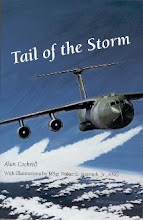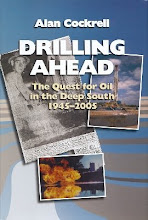 It flashed across our nose like a home run hit out of Heaven’s ballpark. A searing, white-hot dart streaked across the black sky and burned like a tracer bullet through the starry night, plunging below the southern horizon in a heartbeat. I wondered how many denizens of the dark planet sprawled below us saw it.
It flashed across our nose like a home run hit out of Heaven’s ballpark. A searing, white-hot dart streaked across the black sky and burned like a tracer bullet through the starry night, plunging below the southern horizon in a heartbeat. I wondered how many denizens of the dark planet sprawled below us saw it. Frenchie didn’t see it. He was heads-down, reading. His sidewall light spewed a yellow cone onto the boating magazine in his lap. The red and white reflections of the cockpit flickered, danced, and flowed in the lens of his reading glasses. I considered describing the vivid meteor I just saw but thought the better of it. Frenchie would only have grunted and glanced outside, then returned to his reading.
I looked ahead and took stock of the starscape. Constellations hung above us like clusters of glistening celestial grapes waiting for a colossal hand to reach for the plucking.
The radio crackled with a voice far away in a dark room. I imagined the glow of the radar scope casting a green sheen on the man's face as he keyed his mike and gave us a new frequency followed by a lethargic "G'nite."
We were the San Diego-Dulles red eye flight, eastbound over the desert southwest. I saw only a scattering of feeble, lonely lights speckled across the beneathworld. The people were sleeping down there―farm and ranch families. Even if some of them were lying awake, pondering the coming workday, they wouldn’t care that we were sailing high over their roofs. I gazed down and remembered a question that was once asked of me.
I was a first officer on the DC-10. Jim Blue, the captain, was a scab. He had crossed the picket line in the 1985 strike and was now numbered among the shunned. He didn’t talk much. He wasn’t used to it. Every time he came to work, since he scabbed, he dined on cold shoulder in the company cafeteria and felt scornful stares piercing his back. Once while we cruised high over the Midwest, Blue asked me an odd question. “What do you see when you look down there?” I looked down at the vast checkerboard of cultivated farmlands stretching from horizon to horizon. I looked back at him and shrugged. “Farms.”
Blue went silent again and looked out his side window, as if pitying me for my shallowness. He gazed down a long time. I wondered what he saw that I didn’t. He finally resumed his perpetual straight ahead stare, then muttered something. I didn’t understand it. I asked him what.
“Hard work,” Blue said. “Hard work is what I see down there.”
Blue had long since retired, and now as a captain I too occasionally felt a yearning to ask my first officer profound questions. But not that night. Frenchie would only grunt and shrug.
I looked down. Surely none of those hard working ranchers would be up that time of the night. Yet if the winds were calm enough our jet noise would trickle down to the ears of those who might be standing outside, looking up and watching for our starlit contrails. What might they be thinking about us? Hard work?
Hardly.
Maybe an amateur astronomer sat down there searching the Arizona skyscapes for new comet. Or perhaps a farmer-philosopher stood gazing at the heavens pondering his place in the scheme of things. If so, they would be able to see our contrails easily. Earlier I watched another jet a thousand feet below angling across our course. In the streaming starlight I could clearly see the long white ribbon of water vapor stretched out behind it. In times past we would have flashed landing lights at each other―a high silent salute. Most pilots didn’t do that anymore. I wondered why.
Things had changed. Maybe our profession had too quickly gone from a grass roots cadre of old sentimentalist's to new legions of dispassionate button pushers fresh out of air colleges, without a chance to pass tradition along, or worse, without an inclination to do so. I had begun to notice the younger pilots never referred to the jets as her or she. To them the plane was simply “it.” That seemed spiritless. The creature I was riding through that ebony sky was alive. Her heartbeat was a pulsing electronic purr and the hissing slipstream her breath. She was a Boeing 757. Pilots at other airlines called her the "Seven Five." We call her the "Fifty-seven."
I wasn’t sure the pragmatic Frenchie felt the same way about planes’ having lives of their own. He was a retired Marine light colonel who had flown Phantoms and Hornets. And I was pretty sure he had no patience for imagination, although I once heard him call our jet a pig, back when he and I were on the 737. After that, the 737 became the "Pig Jet" for me. But whatever Frenchie's displeasure was with the Pig Jet, even that insult was a veiled confession that he regarded her as a creature, not a machine.
Frenchie was a good pilot. He had been a squadron commander, but here in the quasi-military world of airline flying he had rebelled against authority. He thumbed his nose at the airline’s uniform dress rules; he wore black loafers instead of the required plain-toed shoes and had long ago shed his hat and dress jacket. He preferred wearing a non-descript overcoat. The only way anyone in an airport would know Frenchie was a pilot would be to see him towing his travel bag with his sticker-studded pilot flight kit bag riding piggyback on it.
Like me, he was also a brooder. He would sit for hours saying nothing much―only a grunt, a nod, a chuckle. But over beer and burgers at the layovers he gushed with garish stories of his days with the Corps and his old Marine buds, laughing at the memories with heavy cackles. When the stories were over the brood settled back on him. I knew he was wondering if the best was behind him.
With an hour left in the trip my eyelids grew heavy. My gaze dropped from the star-studded windshield to the glowing instruments, as familiar and contented a sight to me as my family’s faces. As fatigue crept into my eyes the instruments blurred and merged.
I shook it off and remembered Charles Lindbergh’s compelling story of his lone Atlantic crossing 80 years ago. He desperately battled the fatigue demon while his hands and feet struggled constantly to keep his plane under control.
He had nine clattering pistons on his nose whirling a propeller carved from a tree trunk, a whiskey compass, a mariner’s map, and only himself, for 33 hours. While fighting off sleep and the death it bore with it, he still had to fly the plane and navigate. Somewhere over the middle of the Atlantic, Lindbergh, for the first time in his life unsure of himself, stopped trying to guess the screwy winds, the drift angle, the ground speed, and the true course. He resolved simply to hold to an easterly course and hope for the best.
I wondered if Lindbergh, an admitted doubter, ever trusted any power other than his own. But I do know that as the earth turned toward the sun he steered for the only direction he knew his salvation lie―the dawn.
I too was headed east. I could see the ebony expanse ahead taking on a blue hue―the sun driving back the night. Soon the welcome sight of the Appalachian ridgelines and a new day would scroll into view. I wondered what the next day, year, and decade would bring to this once proud profession. I had gotten in on it just as the golden age of the airline pilot was ebbing. I had seen the ugly spoils of labor and management wars. I saw compensation steadily erode as low cost competitors and regional feeders hired people eager to haul trusting passengers for peanut wages, the ink on their commercial pilot licenses still wet.
I watched, numbed, as suicidal zealots cut the throats of my co-workers in their cockpits, turned our jets into missiles, and butchered thousands of innocent people. I saw the industry fall apart in the aftermath, changed forever.
In those dim days after the terrorist massacre, when we all feared for our country, family and jobs―as we still do―I overheard a conversation in the operations room. "What do we do?" a despondent young pilot asked his buddy. The other one replied, "We do three things: Trust God. Trust God. Trust God."
In the wake of the wasted lives and shattered dreams of 9/11, the energy calamity, and the economic meltdown, I constantly wonder what the future holds for me, nearing the end of my career, and for the young ones who never flash their lights, never wear their hats, nor ask the profound questions. I have no idea what lies ahead. I just try to remember the "three things" and―like Lindbergh―hold a steady course and aim for the dawn.



